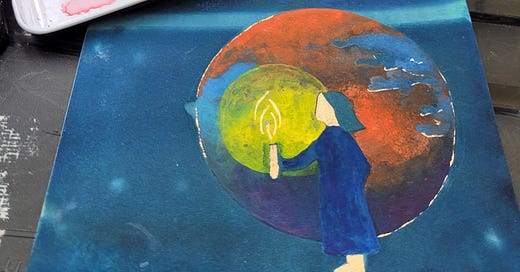An artist just sent out an email titled, simply, “Apologies.” His website plug-in switched off back in December and he hasn’t been able to process sales of prints of Nativity icons. I like the thought of people buying Nativity icons in February, though.
On my to-do list, under a scribbled note to look up website costs, I have written out a Jenny Offill q…
Keep reading with a 7-day free trial
Subscribe to A broken tulip by Maaike to keep reading this post and get 7 days of free access to the full post archives.




